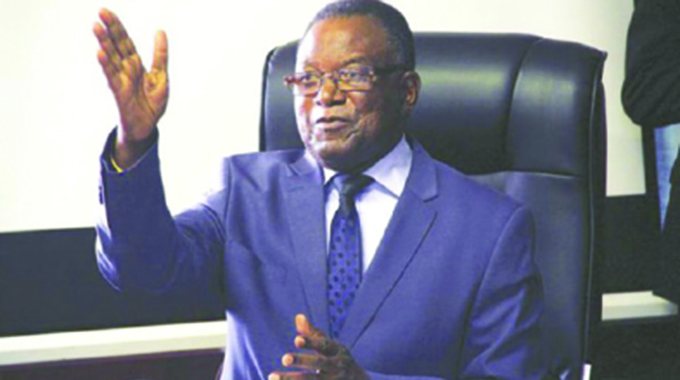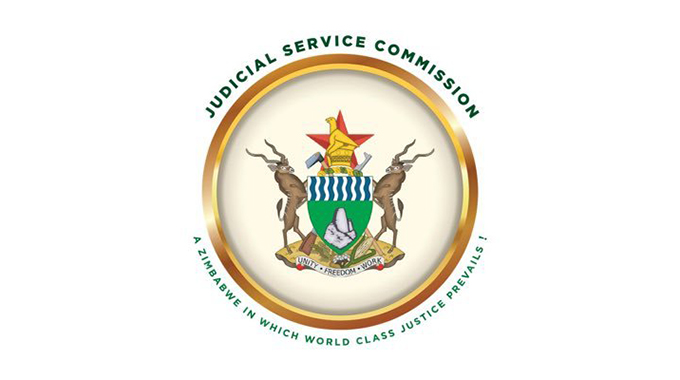Bulawayo industries on recovery path — Minister

Nqobile Tshili
Bulawayo Bureau
PRODUCTIVE Bulawayo industries are shining bright and soon the city will restore its status as the industrial hub of the country with high potential to create more jobs for locals.
Unlike in recent years, where the second largest city suffered massive closure and relocation of big companies, the tide is turning as more companies are now expanding capacity and growing their export footprint.
This is happening at a time when Government, under the Second Republic, is working closely with the private sector to roll out comprehensive economic reforms under the mantra “Zimbabwe is open for business”.
Giant Bulawayo companies such as diversified Treger Group of Companies, Archer Clothing and United Refineries Limited (URL), Sheppco BMA Fasteners, Metal Founders, Datlabs, Kango Products, Zambezi Tanners, General Beltings and Arenel, among others, are emerging stronger despite the economic challenges affecting the country.
President Mnangagwa in May toured some of the top performing industries and commended the private sector leaders for employing innovation to drive their resuscitation.
Speaking yesterday after a tour of Zambezi Tanners and Zimbabwe Grain Bags companies in Bulawayo, Minister of State for Presidential Affairs Responsible for Monitoring and Implementation of Government Programmes, Dr Joram Gumbo, said it was impressive that Bulawayo was regaining its industrial hub status.
Zambezi Tanners is involved in processing of leather and exports 90 percent of its products, which earns the country foreign currency. The company will soon commission a new plant following Government’s support to scale up production and acquire new equipment under the 100 Day Cycle Programme.
Zambezi Tanners increased its monthly output from 90 metric tonnes to 150 metric tonnes while Zimbabwe Grain Bag has diversified to producing seed maize, fertiliser, sugar, mealie-meal and mineral ore bulk packaging.
The company has retooled and at full capacity it can produce four million bags a month and has employed 252 workers.
Dr Gumbo said it was pleasing to observe that more companies in Bulawayo were retooling and increasing capacity utilisation.
He said the revival of Bulawayo industries was among the top targets of Government, considering the city’s strategic position in the region.
“I wish to reiterate that the resuscitation of the industries here in Bulawayo is in line with the provisions of the National Development Strategy 1 (NDS-1) economic blueprint as the country seeks to attain Vision 2030,” he said.
“It’s not by coincidence that Government has embarked on a massive and deliberate rehabilitation and reconstruction of industrial sites as a response to economic challenges, which have characterised the last decade.
“You will be aware that industries found it difficult to retool because they could not access cheap financing due to the illegal sanctions. As a result, most industries were forced to close and the City of Bulawayo lost its status as the country’s industrial hub.
“The name ‘Kontuthu Ziyathunqa’ also lost its relevance. The Second Republic has, therefore, taken a bold decision to devise innovative ways of resuscitating our industries using own resources and through the assistance from friendly nations.”
Dr Gumbo said revival of the city’s industries will also transform the region where most youths were trekking down south to seek employment.
“I’m also impressed by the fact that these two companies that I toured are also working together with the National University of Science and Technology (Nust) to research and make more improvements on their products,” he said.
“It’s very impressive that the employees are wholly Zimbabwean despite the fact that the machinery might be imported. It shows that we have people who will be able to run our country tomorrow when we are gone.”
The minister said Bulawayo needs to reclaim its industrial regional competitive status and now with more scope in view of the African Continental Free Trade Area (AfCFTA) Agreement, which was operationalised in January this year.
“As Government and the private sector pursue initiatives towards revitalising the productive sector in the country, I would like to urge Bulawayo industries to be alert given the city’s strategic positioning to markets and its historical competitive advantage as the manufacturing hub of the country,” said Dr Gumbo.
“I say this because the collapse of Bulawayo-based industries in recent years, partly contributed to the supply gap, reduced competition and dominance of mainly South African products in the regional market. The industrialisation agenda should, therefore, seek to address such imbalances.”
He took note of some of the challenges being experienced by the industries including delays in releasing foreign currency obtained from the auction system, saying he will engage relevant departments.
Bulawayo Provincial Affairs and Devolution Minister Judith Ncube, who was also part of the tour, said it was pleasing to observe that Government’s programmes to revive industry were already in motion.
She said through the support that industry was getting from Government, the city would regain its lost glory.







Comments